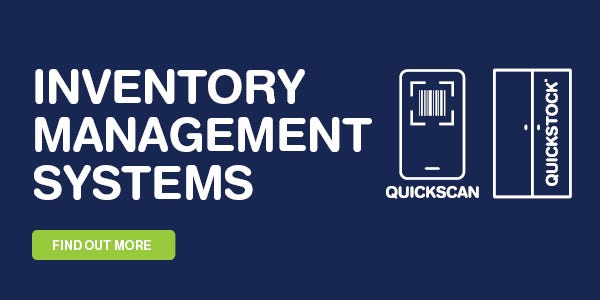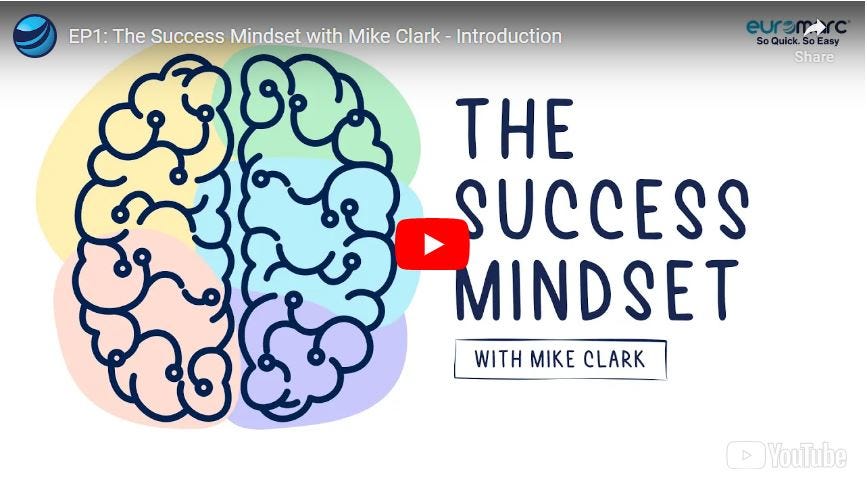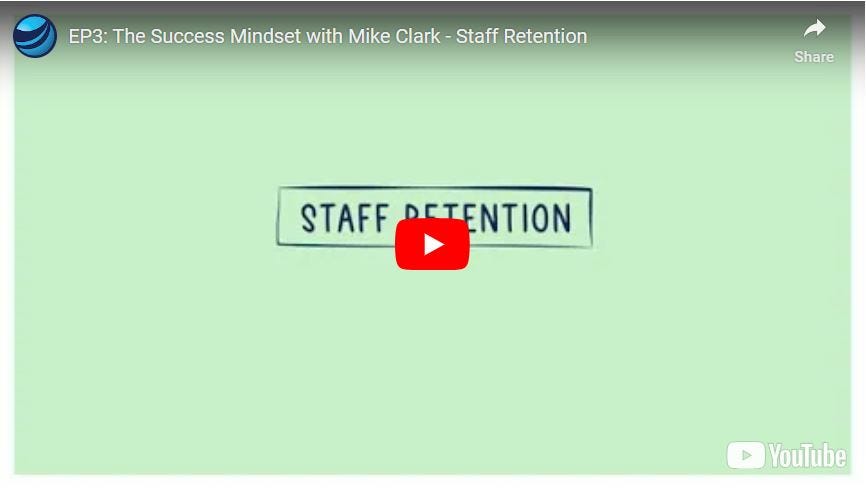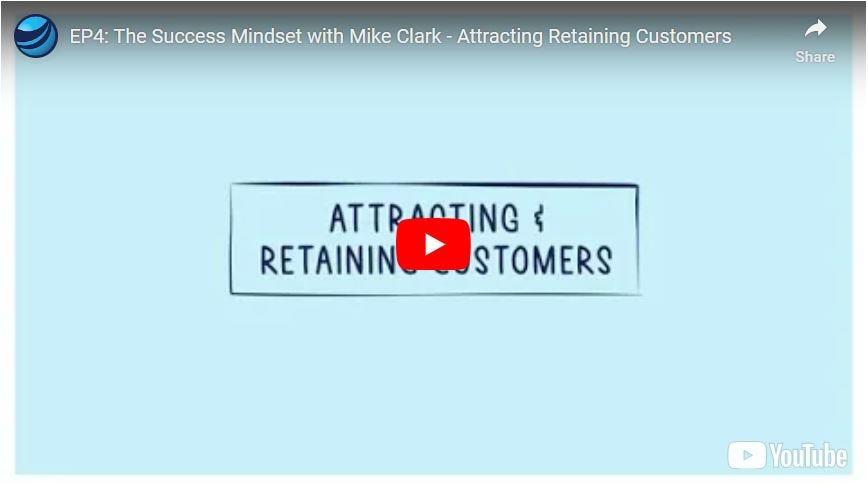EP2: The Success Mindset with Mike Clark - Goal Setting
Goal Setting is one of the single most important things a business can do. In this episode Mike talks about how to be clear on what you want to achieve and how to set objectives for a successful mindset.
Hello, everyone. It's great to be here with Mike to discuss the importance of goal setting when it comes to success. As we near the start of a new year, it seems a great topic to start off with. So, Mike, what advice would you give to businesses around setting goals?
Marvelous. Thanks so much, Andy. For me, goal setting is one of the single most important things a business can do. It gives clarity, and inside of that, there's the old saying that a business that fails to plan, plans to fail. And so we want to make sure that when you start, whether it's a new year, a new week, a new season, whatever the case may be, however you're thinking about going forward, being clear on what you want to achieve. Now, for many businesses when they set goals, one of the things that they can fall into the trap of is not being clear in making sure that the goals are aligned. And so what we want to do is we want to make sure that your goals are aligned.
And so, for me, what I like to do is, when we talk about setting goals and being successful with that, is to actually go back and look at what are the core values of a business. If a business is clear on its core values, those values give you your why. It gives you the reason why you do what you do. And so that then we often call that your mission statement. And so when we're clear on our mission, the why we exist, and the values we have inside of that, then, and really only then, can you get your vision. And so, for me, I'll often say to people, before you go and set your goals, have you clearly articulated the reason why you exist, your mission, and your values?
And inside of values, we want to be really clear that we don't want expensive wallpaper. I often call it, you know, I say to peopl, what's your company values? And they go, uh, it's on that wall over there. So, the values are things that we need to be living on an ongoing basis. With that then set, when we're really clear on why we exist, how we behave, that's what values really boil down to is how we behave in the organization, then as a team we go, well, where do we want to go? And that's what we call your vision. So your goal setting has got to start off with the big picture. Where's the whole organization going? And when we can be clear on where the whole organization's going, then we can go, "Great."
In order to get there, one are the key milestones, the areas that we need to focus on in terms of our strategy. In strategy, one of the things that's most important is what you say no to rather than what you say yes to. And so when you know what you want to achieve, then going what are the absolute essentials, what are the pillars, if you like, of what we need to do in order to get that success? So I encourage engineering businesses to sit down and go, what is it that's going to help us to be successful? What are the key areas? Now sometimes people will break that down by division. You know, what's our people strategy? Or what's our equipment strategy? Or looking at a marketplace. Whatever it might be, being really clear on what are the key areas we're going to focus on. And from that, you then get what we call strategic objectives.
And that allows people to set what we often call your 90-day sprints. Where people can go, right, in the next 90 days, this is what we want to achieve. So we want to move-- let's say we pick equipment, we want to be able to design. In the next 90 days, we want to be able to design the layout of the factory so we can put in this new piece of equipment. And what we're going to need to move and where the wires are going to be running, whatever the case may be. And then the next 90 days might be the actual installing of it. And the following 90 days might be the actually starting to operate it and making it pay for itself. When we're clear on that, what that then does is when we have clear strategic objectives, we're then able to go to what we call KPIs. The key performance activities, KPAs, and key performance indicators, your KPIs, for the staff.
So goal setting should start at a corporate level. Come down to a level where we go, that's what the whole company wants to achieve, these are the elements of success. And then this is how each individual person feeds into that. So every person in a company should be able to go, this is my part in helping the company achieve its goal. And when we can do that, we actually bring the best out of people, because suddenly people feel like they're part of a bigger picture. They feel like they're making a difference. They've got some form of impact. I love the story of JFK when he met a sweeper in NASA and he said, "Oh, what do you do here?" And he said, "Oh, I help put a man on the moon." That ability to link that what you're doing into the vision of the business. And so I really encourage engineers to take the time to break down their goals from a big picture down to the individual level, and that's what helps businesses to be successful.
Yeah, that's some really great advice. Thanks, Mike. This leads on to the next point you wanted to discuss, staff retention.
Yes, absolutely.
Which is important if we want to be able to achieve our goals. Is that a fear?
Absolutely. The key thing with staff retention is that your staff are the people who execute the goals. And so the more we can retain those staff, the less we've got to go back to retraining new staff. And we actually get more momentum if we can train our staff and get our goals more successfully and faster as well.
Yeah, that's very good, Mike. So on our next episode, we're talking about staff retention. So we'll see you then
Check out our next episode here EP3: The Success Mindset with Mike Clark - Staff Retention
 Need assistance?
Need assistance?







